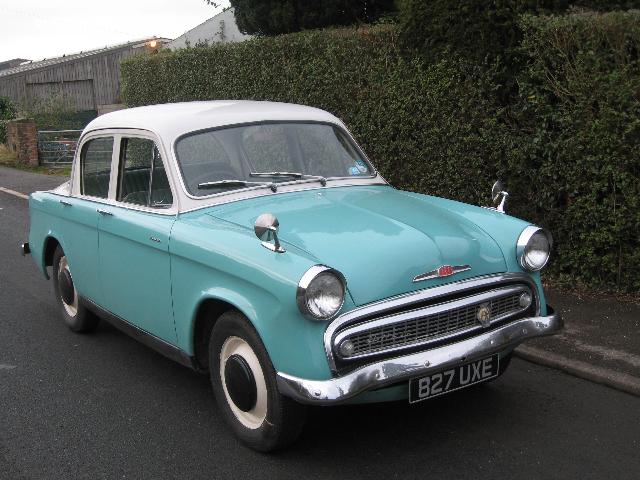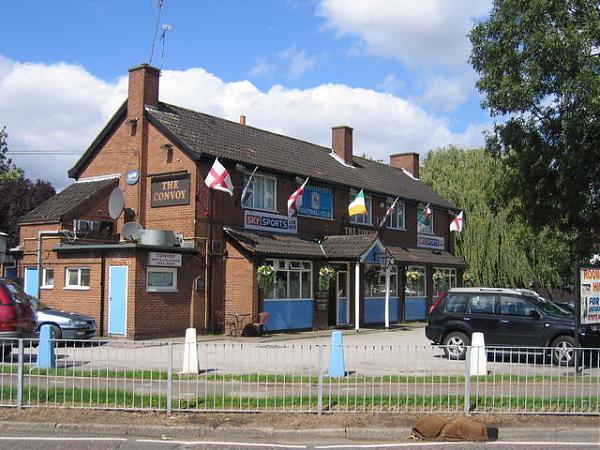An occasional series in which I share some significant events from my past. This one picks up from where ‘Into the Seventies’ ended.
I sometimes struggle to get this next sequence of events in the correct chronological order. There was ‘spot-the-ball’, a mini spending spree and the ending of overtime at work.
I’ll begin with ‘spot-the-ball’. This weekly competition, run by the Coventry Evening Telegraph, involved the publication of an action photograph, taken at a soccer match, with the ball blanked out. Contestants were asked to ‘use their skill and judgement’ to estimate the position of the ball.
Had the man with his feet off the ground already headed the ball? Was the goalkeeper about to catch it or had it passed over his head? Those were the sort of judgements one was supposed to take into account before marking the centre of the ball with a cross. Suffice to say that one week I won a runner-up prize of £250.
To put that into context, it was the equivalent of about two month’s earnings at the time. It meant, among other things, that we could afford to purchase a car. I perused the ‘for sale’ columns in the same newspaper and, after viewing a few of the motors on offer, agreed to pay £80 for an old Hillman Minx.

What I was unaware of at the time was that many of the advertisements that purported to be ‘private sales’ were in fact dealers operating out of private residences. Some of these individuals had few scruples and would indulge in various tricks of the trade in order to make a vehicle appear, and sound, much less decrepit than it really was. That seems to have been the case with the two-tone blue and cream Minx. It was not long before I realised that it was using far more oil than it should.
By then Freda’s brother was in an informal business partnership with an older chap who restored and resold cars. When I shared my Hillman Minx story with him he asked why did I not go to him? When I did just that, he showed me a Ford Corsair on which the paint finish was deteriorating. Having begun life in dark green livery, the car’s previous owner had decided to re-spray it silver. This second coat had not adhered too well – perhaps the original surface had not been properly prepared. My brother-in-law offered me a tin of bright yellow paint which he assured me was easy to apply with a brush.
Meanwhile we decided also to purchase a heating system for the house and a chest freezer which was supposed to save money by enabling bulk buying of various food products. This particular deal included a number of vouchers that had to be spent in a wholesale warehouse in Dunstable. Additional vouchers could be purchased but no actual cash changed hands at the warehouse. We made a couple of trips, before we figured out that the cost of fuel for the journey, plus the interest we were paying on the purchase price of the vouchers, exceeded any saving made on the goods we were buying.
I mentioned the ‘Jumbo’ nylon production facilities at Aintree. When the design stage of ‘Jumbo 6’ was completed there was no new project for the team involved to move on to. Contract draughtsmen were the first to be let go but there came a morning when long serving individuals were called into the office to be informed that their services were no longer required.
It was a worrying time. I had recently been assigned to a project for the manufacturer of anti-knock additives for motor fuel. As a relatively recent recruit I fully expected that I would be given my marching orders and that a long server would be re-assigned to my role. My relief, when it became obvious that this was not the case, was tempered by the knowledge that colleagues with years of loyal service were discarded.
For a long while I had become used to my income being boosted by regular overtime. Now that was no longer available. Freda could not increase her hours because of the need to be at home outside of school time. I found a job as barman in a nearby pub, working three weekday evenings plus lunchtime and evening on Saturday and Sunday.

I enjoyed the work. It was quite straight forward with a limited range of products with prices that were easily remembered. There were three bars: the ‘public’ which was mostly male; the lounge, where beer prices were 1p dearer, and the ‘snug’, a small room patronised by an exclusive clientele who were happy to pay an extra 2p for a pint of their favourite tipple in the company of a few close friends. There was also an ‘outdoor’ counter where people who preferred to drink at home could purchase bottled ale or bring their own jug to be filled with draft beer.
We did not have the benefit of an electronic till with each product allocated its own button. When someone ordered a large round of drinks we had to memorise, and mentally add together, the individual prices before presenting the customer with the total. We’d then ring up the total before taking any change from the drawer to hand to the customer.
The landlord and the other staff were a friendly crowd, as were the regular customers. We were paid for a half hour for clearing up after the doors closed at 10:30. After that the landlord would buy everyone a drink and we would play darts, sometimes for a further hour.
No food was prepared or consumed on the premises – apart nights when the darts team were playing a home match. Then the landlady would produce a tray of roast potatoes for both teams and their followers.
I don’t recall ever witnessing a fight, nor were there many arguments. I do remember the music that played frequently on the jukebox: Rod Stewart’s Maggie May, Olivia Newton Johns’ cover of John Denver’s Country Roads and the same artiste’s Banks of the Ohio, Joan Baez’ The Night We Drove Ol’ Dixie Down and Cher’s Gypsies, Tramps and Thieves. It’s impossible to listen to any of those songs now without recalling my days working at The Convoy.
And it was there that I heard something that for me came to epitomise the attitudes of certain members of the working class, especially those in public service, during the 1970s. I already knew that the individual concerned worked for Coventry City Council. I’ll call him Bill. The conversation went something like this:
Cutomer: Hi Bill. How are things?
Bill: Fine. Enjoying a nice break.
Customer: Annual leave?
Bill: Sick.
Customer: Oh dear, what’s wrong?
Bill: Nothing mate. I get 4 weeks sickness entitlement every year so I’m taking it.
I was shocked to discover, when I looked on-line for a photograph of The Convoy, that it has been demolished to be replaced by eight houses. It was, in the 1970s, a friendly local venue where neighbours socialised. I guess it’s a sign of the times that such places have fallen into disuse.

Those were the days, and we did what we had to do. In this country there’s so much knock down and rebuilding going on that we would be shocked to discover that a place we knew in the 70’s was still standing and operating as the same business today.
LikeLiked by 1 person
A sign of the times indeed. I once worked across the road from an old style pub – it was converted to a McDonalds!
LikeLiked by 1 person
Several years ago I set to try and put the mid 70s into proper chronology. It liked to have killed me. And as you discovered with the convoy, some things are best left to memory than discovery. Unnown and unexpected headstones fall into that category as well. Car stories – we should write a book about misplaced windfall monies stories. You can’t imagine how I enjoy these bits of history. An oasis in an impersonal world. how many city workers does it take to change a light bulb? One. And five to supervise.
LikeLiked by 1 person
I went form school to college and then school again, so it was not until I worked on an office for a short while I experienced the ‘workplace.’ i was shocked at the amount of time wasted (you never had a spare moment teaching, breaks a d dinner you were mostly on duty). In the office people make personal phone calls, chatted, took ages making cups of tea and coffee and – like you mentioned – took every applicable sick day they could.
LikeLiked by 1 person
That was not my experience generally in the private sector, Linda.
LikeLike